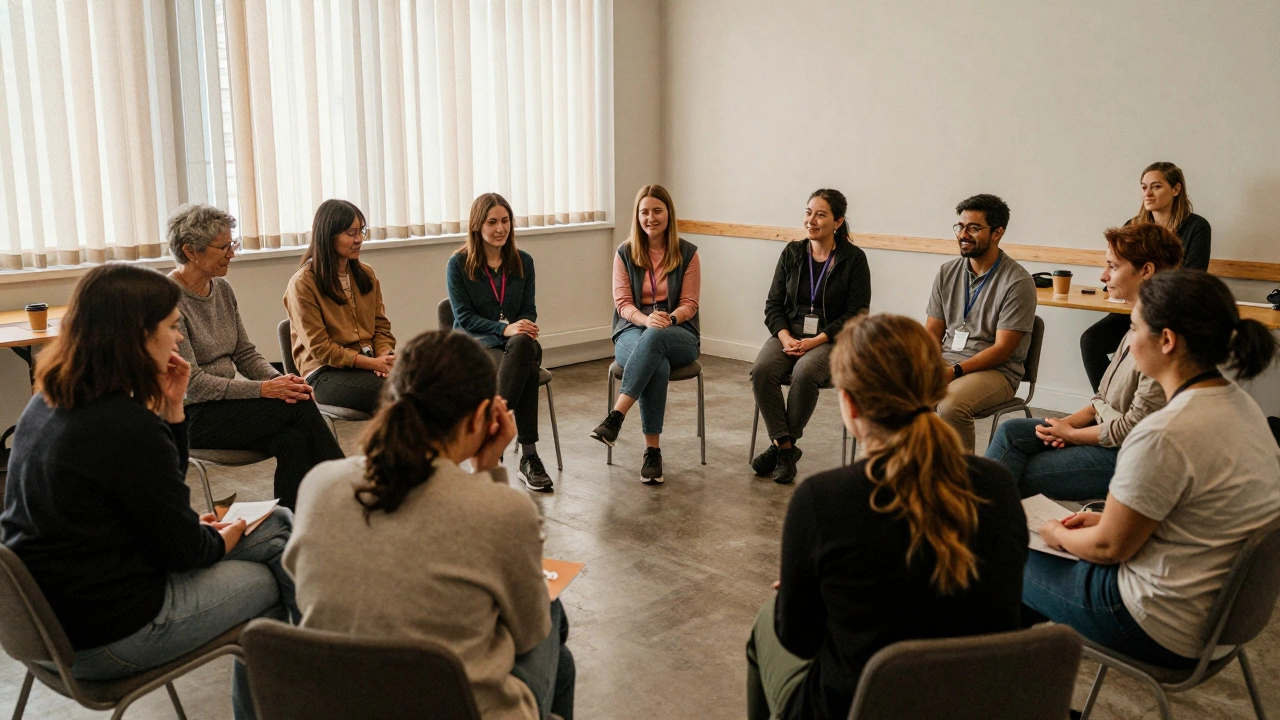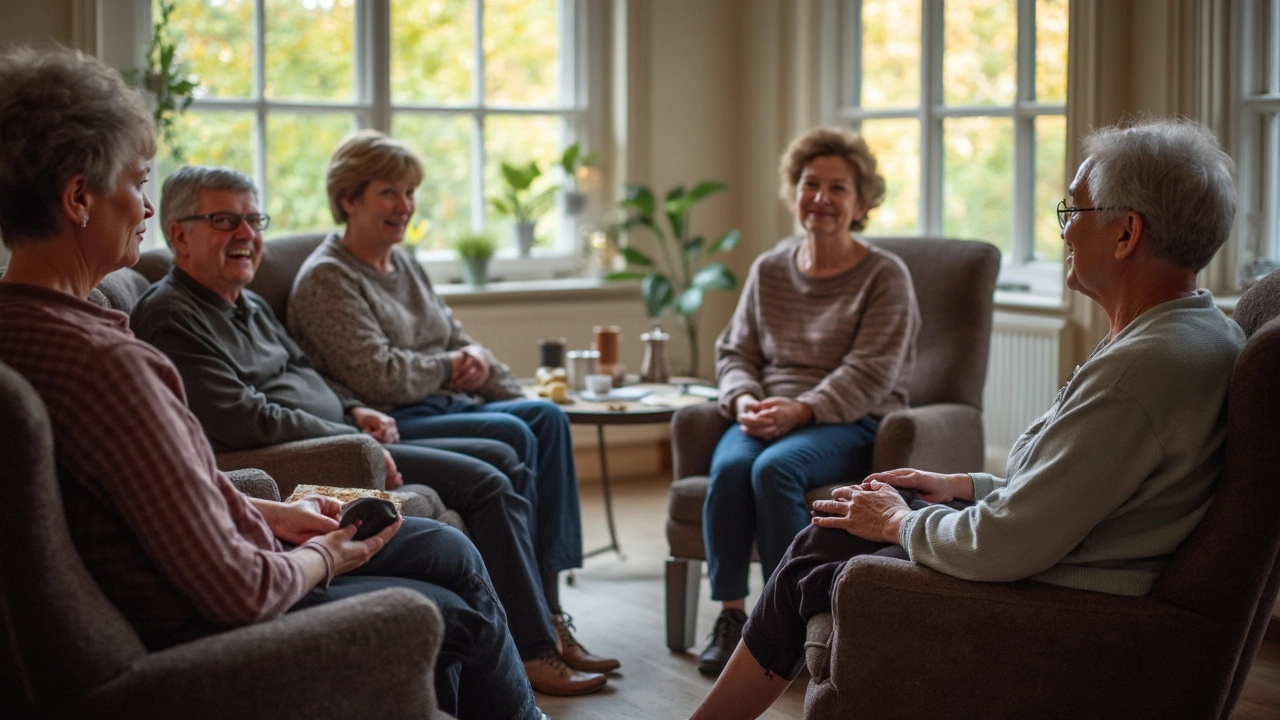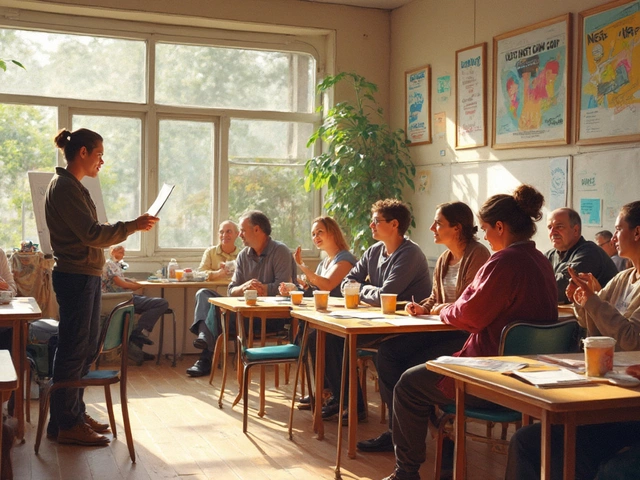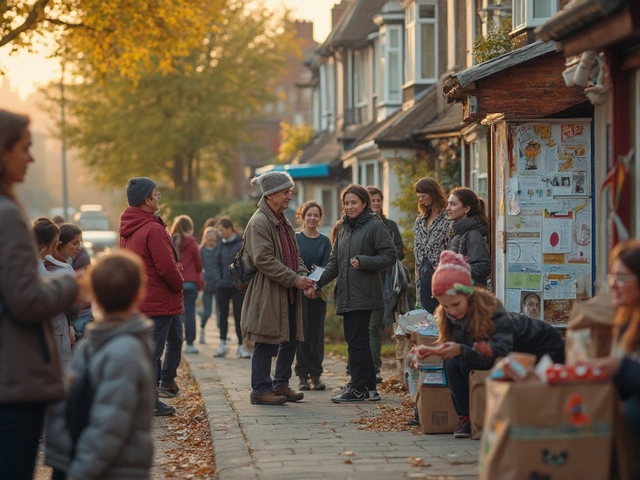Group Therapy at Holy Family Catholic Church – What You Need to Know
Feeling overwhelmed? Looking for a safe space to share, listen, and grow? Our church‑run group therapy sessions might be exactly what you need. They bring together people who face similar challenges, give each other encouragement, and lean on faith for strength. Below we break down why these groups work, who they’re for, and how you can start attending.
Why Join a Group Therapy Session?
First off, you’re not alone. In a group, you hear stories that mirror your own, which instantly reduces the sense of isolation. That shared experience creates a bond stronger than a one‑on‑one talk, because everyone brings a different perspective.
Second, the group setting builds real‑life coping skills. When someone shares a technique that helped them—say a short prayer before bedtime or a breathing exercise—you can try it right away. You also get immediate feedback, so you know what works for you.
Third, the Catholic community adds a spiritual dimension. Our facilitator often weaves scripture, the sacraments, or simple reflections into the conversation, giving you both emotional and spiritual nourishment.
Finally, regular attendance creates a routine. Knowing you have a set time each week to talk, pray, and unwind can become a cornerstone of your mental‑health plan. It’s like having a weekly check‑in with a supportive family.
How to Get Started
Getting involved is easy. Here’s a quick step‑by‑step guide:
1. Find the schedule. Check the church bulletin board, our website’s events page, or ask at the parish office. We run three groups a week—one for teens, one for adults, and a mixed‑age group focused on grief and loss.
2. Sign up. There’s a simple sign‑up sheet at the office or an online form on our site. No paperwork, no fees. Just put your name and contact info.
3. Prepare a little. Think about one thing you’d like to share—maybe a challenge you faced this week or a small win you’re proud of. You don’t have to be a speaker; listening is just as valuable.
4. Arrive early. We meet in the parish hall 10 minutes before the start time. This gives you a chance to settle, say hello, and grab a cup of tea.
5. Respect the rules. Our groups follow three basic guidelines: confidentiality, respect, and participation. Anything shared stays in the room, everyone listens without judgment, and each person is encouraged to contribute in a way that feels safe.
That’s it—no complicated forms or long waiting lists. If you ever feel unsure, drop by the church office and ask the pastoral care team. They’ll walk you through the process and answer any questions.Group therapy isn’t a magic cure, but it’s a powerful tool that combines peer support, professional guidance, and faith‑based encouragement. Give it a try and see how much lighter you feel after just one session.

What Is the Difference Between a Support Group and a Therapy Group?
Support groups offer peer connection and emotional comfort, while therapy groups are led by professionals to drive change. Learn how each works and which one is right for your needs.
Read More
Support Group Example: How Local Groups Really Work
Wondering what a support group looks like in practice? This article breaks down a real-life example of a local support group, showing how meetings run and how people support each other. You’ll get tips on what to expect, how to find the right fit, and why joining can make a real difference. We cover who leads these groups, what happens at meetings, and debunk a few myths along the way. It’s a practical guide for anyone thinking about joining or starting a support group.
Read More




